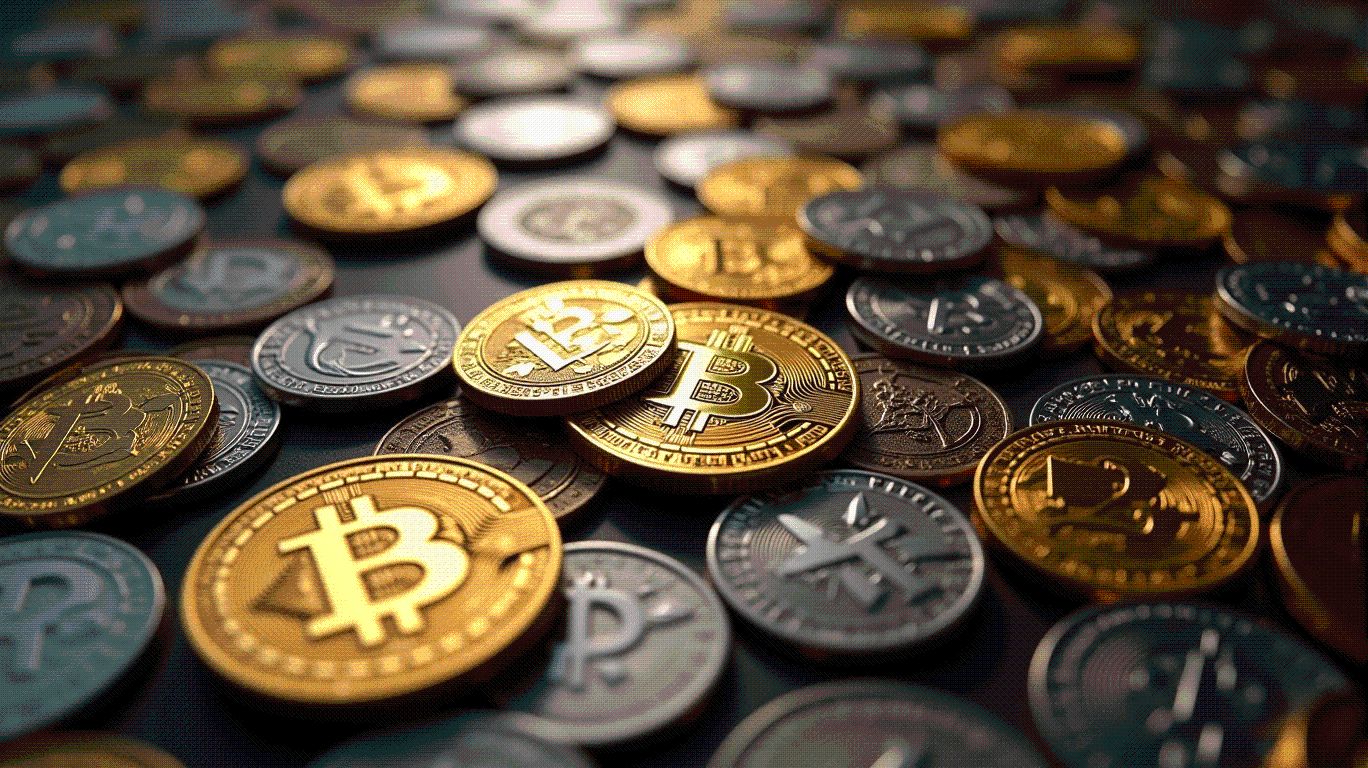XRP’s Institutional Adoption Momentum: Gumi’s $17M Investment as a Catalyst for Long-Term Value Appreciation
- Japanese firm Gumi invests $17M in XRP for cross-border payments and liquidity via SBI partnership. - Growing institutional adoption includes $20M-$500M XRP allocations by firms like Nature’s Miracle and Trident, shifting from speculation to operational use. - SEC’s 2024 XRP commodity reclassification spurred 92 ETF filings in 2025, projecting $4.3–$8.4B inflows and reduced regulatory risks. - XRP’s sub-5-second settlement and $0.0004 fees outperform SWIFT, with Ripple’s ODL processing $1.3T in Q2 2025 t
The institutional adoption of XRP has reached a critical inflection point, driven by strategic corporate treasury allocations and regulatory clarity. Japanese gaming and blockchain firm Gumi’s recent $17 million investment in XRP—part of a broader dual-asset strategy alongside Bitcoin—exemplifies this shift. By acquiring ¥2.5 billion ($17 million) in XRP through a phased purchase from September 2025 to February 2026, Gumi is positioning itself to capitalize on XRP’s utility in cross-border payments and liquidity provision, while leveraging its partnership with SBI Holdings, a Ripple ecosystem stalwart [1]. This move underscores XRP’s growing role as a strategic reserve asset, particularly in markets where speed, cost efficiency, and regulatory alignment are paramount.
Blockchain-Based Treasury Strategies: XRP’s Competitive Edge
Corporate treasuries are increasingly adopting blockchain-based assets to optimize liquidity and reduce friction in global operations. XRP’s sub-5-second settlement times and $0.0004 per-transaction fee make it a compelling alternative to traditional systems like SWIFT, which often incur delays and high intermediary costs [2]. For instance, Ripple’s On-Demand Liquidity (ODL) processed $1.3 trillion in cross-border transactions in Q2 2025, demonstrating its scalability and real-world utility [3].
Gumi’s investment aligns with a broader trend: companies like Nature’s Miracle Holding Inc. ($20 million), Trident Digital Tech Holdings ($500 million), and Webus International ($300 million) have allocated significant portions of their reserves to XRP, often pairing it with staking and yield-generating strategies [2]. These allocations reflect a shift from viewing cryptocurrencies as speculative assets to recognizing their operational value in financial infrastructure.
Regulatory Clarity and Institutional Confidence
The U.S. Securities and Exchange Commission’s (SEC) reclassification of XRP as a commodity in late 2024 has further accelerated institutional adoption. This regulatory clarity has spurred 92 XRP ETF filings in 2025, with projected inflows of $4.3–$8.4 billion, signaling robust demand from institutional investors [3]. Gumi’s partnership with SBI Holdings—a major Ripple collaborator—also highlights the importance of ecosystem alignment in mitigating regulatory risks and enhancing liquidity [1].
Moreover, XRP’s utility in compounding treasury models is gaining traction. For example, VivoPower International’s collaboration with Flare to generate yield on XRP holdings illustrates how corporations are leveraging blockchain to create self-sustaining liquidity pools [2]. Such strategies amplify the long-term value proposition of XRP, particularly in markets where traditional assets lack comparable efficiency.
Conclusion: A Catalyst for Long-Term Value
Gumi’s $17 million investment is not an isolated event but a harbinger of a larger institutional shift. By integrating XRP into its treasury strategy, Gumi is betting on its role in cross-border remittances, liquidity solutions, and yield generation. As more corporations follow suit—driven by XRP’s efficiency, regulatory tailwinds, and ecosystem partnerships—the asset’s long-term value appreciation becomes increasingly inevitable. For investors, this momentum presents a unique opportunity to align with a blockchain-native asset that is reshaping global financial infrastructure.
Source:
[1] Japanese Game Developer Gumi to Acquire 2.5 Billion Yen
[2] XRP Is Becoming a Corporate Reserve Asset
[3] XRP's Strategic Value in Institutional Portfolios
Disclaimer: The content of this article solely reflects the author's opinion and does not represent the platform in any capacity. This article is not intended to serve as a reference for making investment decisions.
You may also like
XRP’s Post-Regulatory Clarity Momentum and Its Long-Term Institutional Viability
- XRP's 2025 SEC "not a security" ruling unlocked institutional adoption, with 11+ ETFs under review and $1.3T in cross-border transactions via Ripple's ODL. - Layer Brett (LBRETT) offers 55,000% APY staking and Ethereum Layer 2 scalability but faces regulatory risks as a meme-driven altcoin with speculative 100x-1,000x price projections. - XRP's institutional credibility contrasts with LBRETT's retail-driven model, as Ripple partners with major firms while LBRETT's deflationary structure and governance ex

Assessing the Significance of the $164.6M Spot ETH ETF Outflow: A Cautionary Signal or a Temporary Correction?
- U.S. spot Ethereum ETFs saw a $164.6M net outflow on Aug 29, 2025, ending a six-day inflow streak led by Grayscale and Fidelity funds. - The outflow coincided with Ethereum price dips below $4,300 amid inflation fears and geopolitical risks, contrasting with Ethereum's 71% YTD gains. - Institutional investors shifted capital to safer assets like TIPS due to Fed rate delays and Trump trade policies, while retail adoption via DeFi/NFTs and Layer 2 solutions remained robust. - Technical indicators show Ethe

Can Remittix (RTX) Overtake Dogecoin and Lead the 2025 Altcoin Surge?
- 2025 crypto market pits utility-driven Remittix (RTX) against meme-driven Dogecoin (DOGE), with RTX targeting $19T remittance inefficiencies via instant cross-border payments and deflationary tokenomics. - RTX’s $22.2M presale, institutional adoption, and CertiK-audited security contrast with DOGE’s speculative reliance on social sentiment and unlimited supply, risking long-term viability. - Market rotation favors RTX as Ethereum’s utility token classification boosts institutional inflows, while DOGE fac
